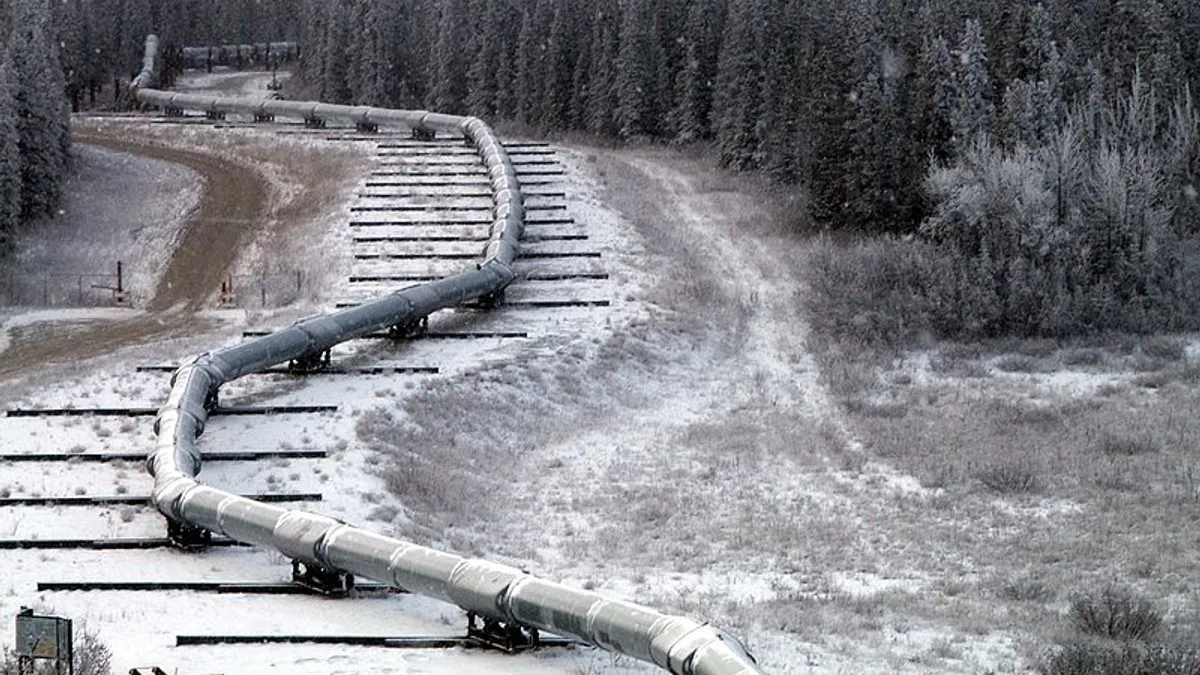Dive Brief:
- Staff of the Federal Energy Regulatory Commission have issued a final environmental impact statement concluding the 300-mile Mountain Valley Pipeline project may go forward without excessive impacts.
- However, before the commission can issue a certificate to EQT Midstream to begin construction, President Trump's commission nominees will need to be confirmed by the Senate.
- Opponents of the project say it will endanger water supplies and communities. The Sierra Club and allies say FERC's environmental review gave too much deference to consultants favorable to the project.
Dive Insight:
The environmental review for Mountain Valley Pipeline is largely favorable, despite some "significant" expected impacts in forests, according to the Associated Press.
But while some project opponents say the risks cannot be entirely mitigated, it's all moot until FERC has enough members to issue an order.
The commission needs three members to issue major decisions, but has been shorthanded since February. President Trump has nominated two commissioners, but they have yet to come up for a vote before the full Senate.
Projects are backing up at FERC, but as SNL points out, healthcare has crowded out a vote on nominees for the time being.
Mountain Valley is targeting a late 2018 in-service date. EQT will operate the pipeline and own a significant interest, along with NextEra US Gas Assets, Con Edison Transmission, WGL Midstream, and RGC Midstream. The pipeline is designed to provide up to two million dekatherms per day of firm transmission capacity to markets in the Mid- and South Atlantic regions of the United States.
The line will also extend the Equitrans transmission system in Wetzel County, W.Va., to Transcontinental Gas Pipeline Zone 5 compressor station in Pittsylvania County, Va.
Kate Addleson, director of the Sierra Club's Virginia chapter, said in a statement that the environmental review "failed to adequately address the threats the project poses to our communities and our environment.
"This pipeline endangers the water and land it will cross, threatening every community along the way," Addelson said. "The stakes are too high and the risks too great for this project to proceed."
Some opponents of the line have questioned whether Mountain Valley Pipeline, like the higher-profile Atlantic Coast Pipeline, have sufficient customers. A study released last year by the Southern Environmental Law Center concluded they were unnecessary, as "natural gas supply capacity exceeds peak demand."
The 600-mile Atlantic Coast Pipeline is expecting to receive a final environmental report this fall, despite continuing protests from environmentalists.















